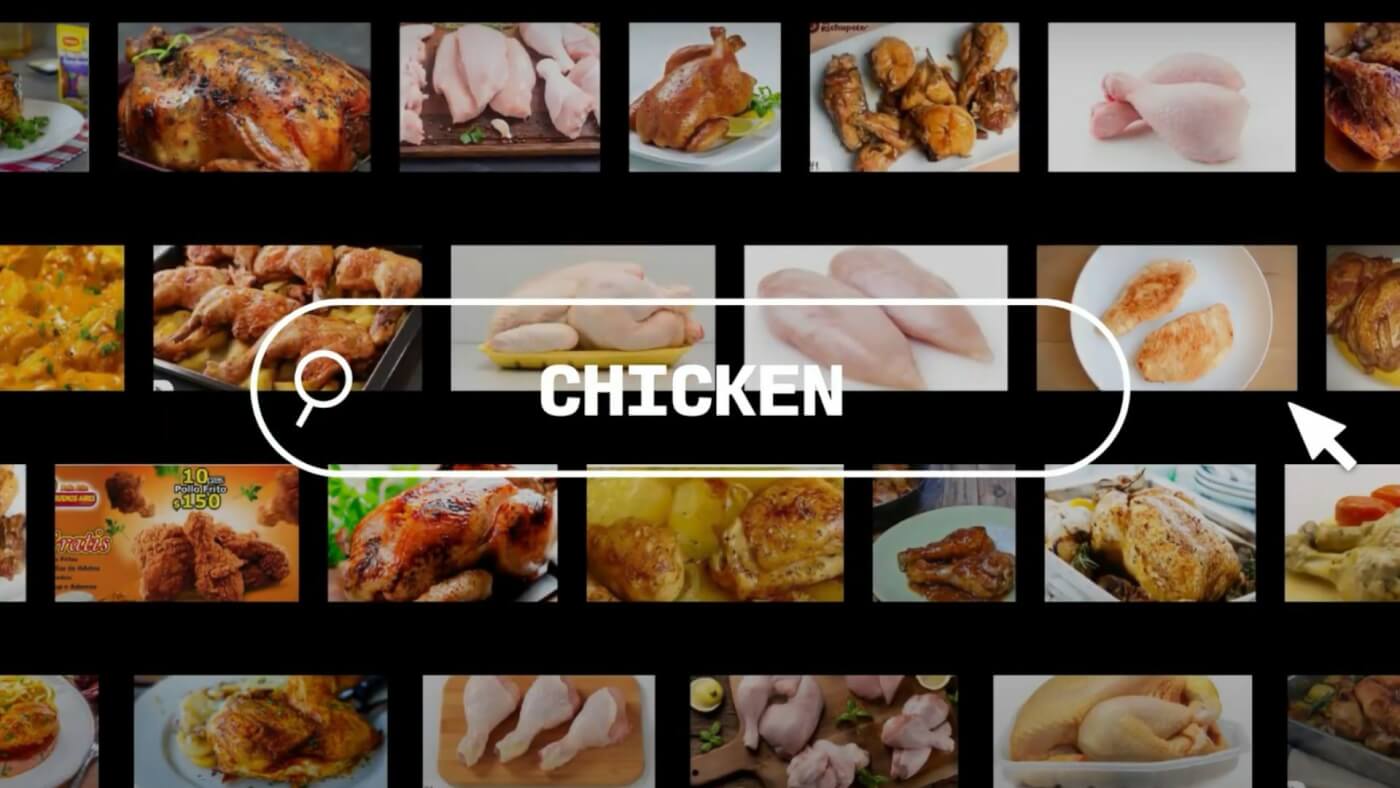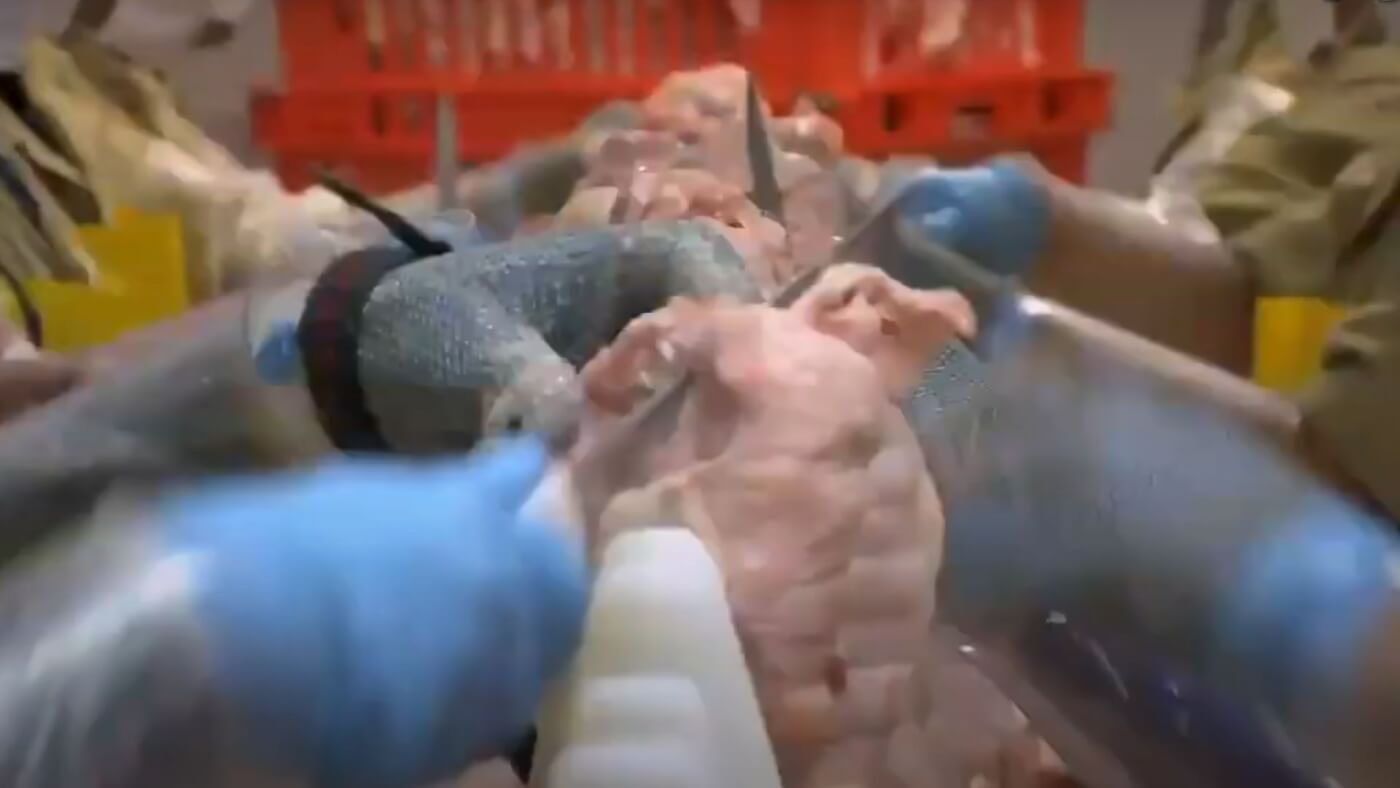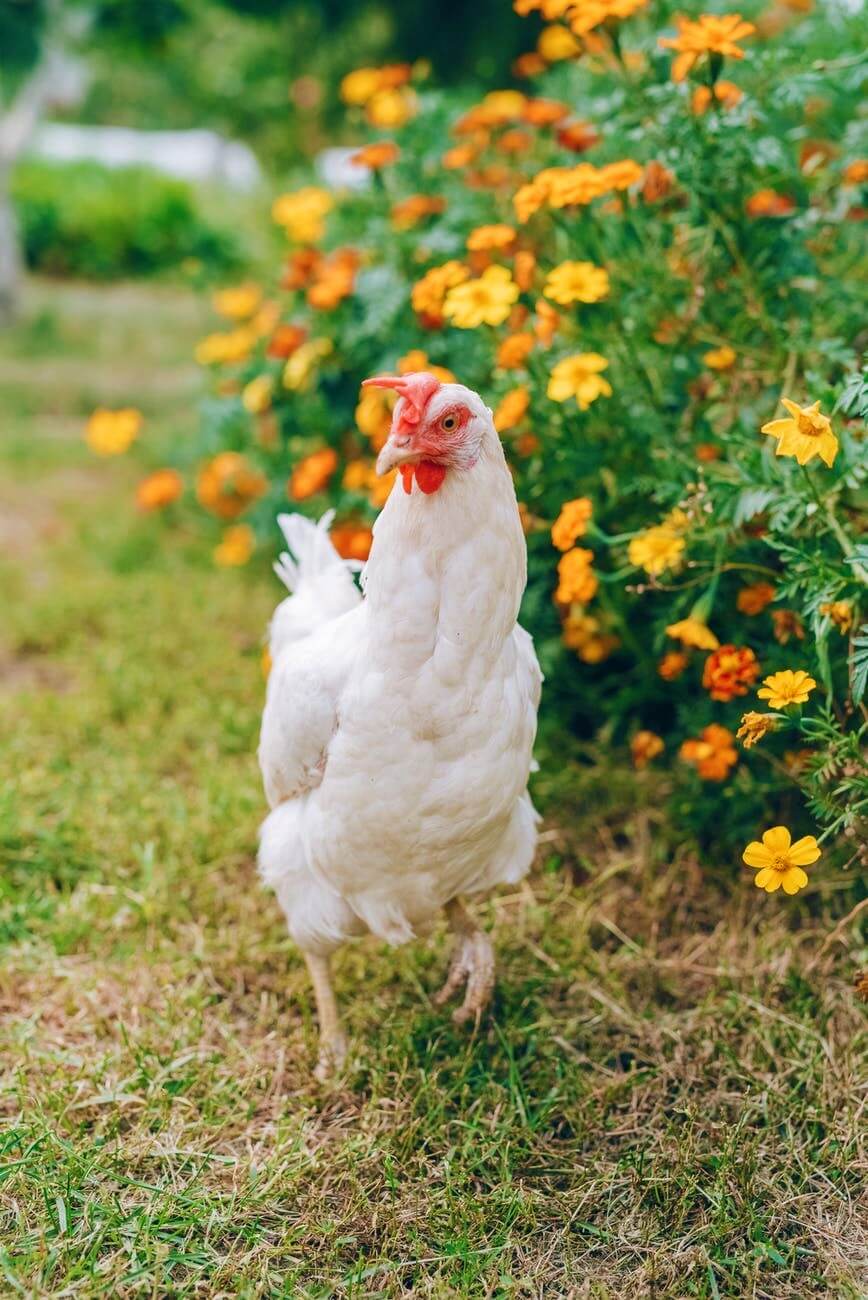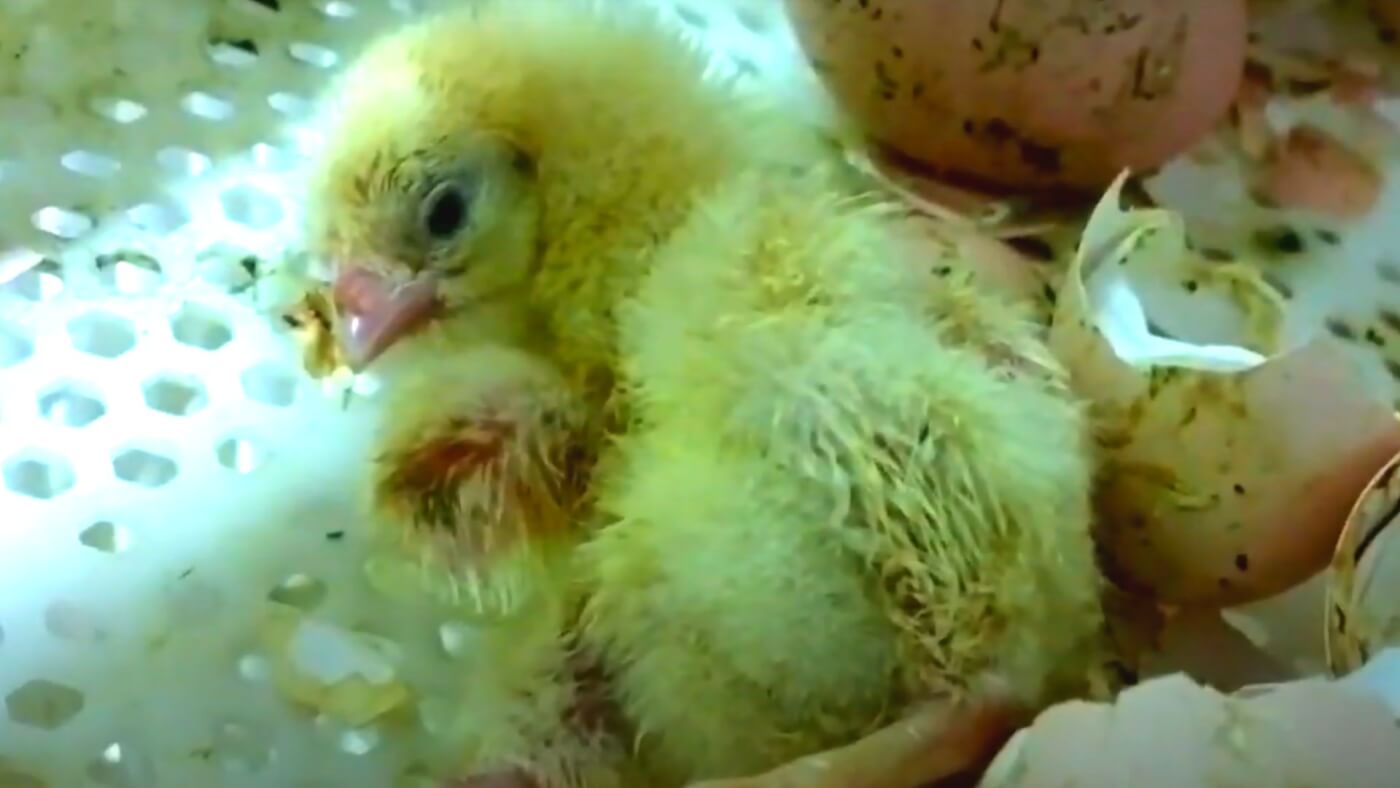No Mere ‘Fowl Play’ on the Internet: Video on the Putrid Search Results for ‘Chicken’
When you google “chicken,” what do you find? PETA reveals the most common outcome by sharing this brief video:
Made by The Juju, a creative agency started in Argentina, the video shows that most search results for “chicken” display speciesism and are about how humans use the bird for food, not the living animal.
Why Disturbing Results Appear When You Google ‘Chicken’
Worldwide, humans breed, confine, abuse, and kill chickens for meat and eggs every day, every hour, every minute—every second. In 2020, Americans ate more flesh from chickens than from cows, averaging 96.4 pounds of broiler chickens per person. The U.S. repeated that pattern in 2021, but the amount dropped to an average of 68.1 pounds per person.
What chickens endure to end up on a plate is horrifying. Humans breed and drug them to grow so large so quickly that their legs and organs can’t keep up, making heart attacks, organ failure, and crippling leg deformities common. Many chickens become crippled under their own weight and eventually die because they can’t reach water nozzles. When they’re only 6 or 7 weeks old, they’re crammed into cages and trucked to slaughter.
In the time it takes to look up “chicken” online, factory workers kill and cut up countless chickens for food. The search results will remain the same until we take a closer look.
Don’t Google ‘Chicken’—Instead, Search Your Heart for Compassion
Chickens are fascinating individuals who are intelligent and inquisitive. Like all animals, they value their lives. They are highly social and caring birds, looking out for their families and for other chickens in their group. They like to spend their days together, scratching for food, taking dust baths, roosting in trees, and lying in the sun.
Chickens also have highly developed communication skills. They use dozens of types of vocalizations to distinguish between threats approaching by land as opposed to those approaching by water. A mother hen begins to teach these calls to her chicks before they hatch. She clucks softly to them while sitting on the eggs, and they chirp back to her and to each other from inside their shells.
Choose to Be Kind to Chickens by Going Vegan
Perhaps someday, smart devices will reveal the full horror of what happens to animals used for food. Until then, have compassion for chickens—and all animals—as individuals, and never view them as a meal.
The video concludes by asking viewers to “see the individual” and “go vegan.” For chickens, the environment, and your health, learn how simple going vegan is and choose kindness:






